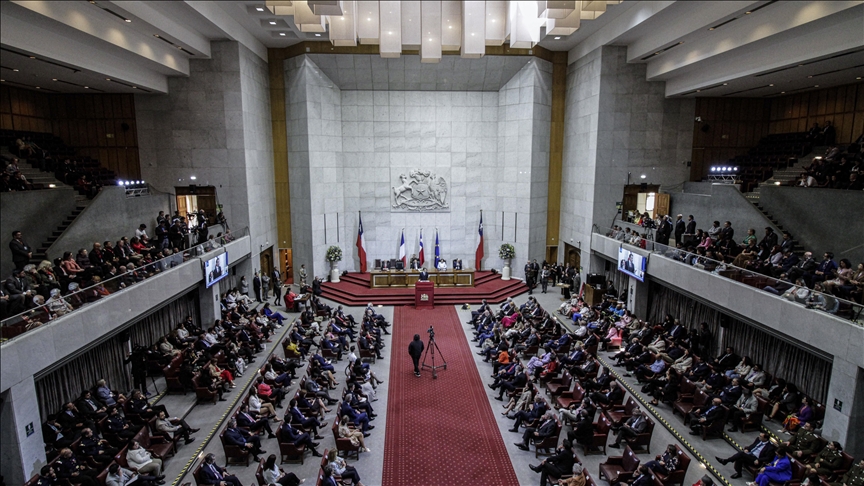
ISTANBUL
France's upper house, or Senate has passed the 2025 state budget bill, with a majority of 217 votes to 105.
While the result offers a boost to the government, the battle over the budget is far from over, with critical negotiations set to begin next week.
A joint committee of seven senators and seven deputies will convene on January 30 to craft a compromise between the Senate and National Assembly versions of the bill, Le Parisien reported on Thursday.
The outcome will determine whether the government can meet its February deadline to finalize the budget, which is essential to avoid further economic disruption.
“This is an extremely difficult and demanding process, but it is absolutely necessary. A France without a budget is a France at a standstill, deepening its deficit,” government spokesperson Sophie Primas said, stressing the urgency of reaching an agreement.
The stakes are high for the government, which lacks an absolute majority in the Assembly and faces pressure from Brussels to restore fiscal discipline.
Opposition from left-wing parties remains fierce, with Socialists, Greens, and Communists united in rejecting the bill.
If a compromise is reached, the revised text will return to the National Assembly in early February for a final vote. However, the government may resort to Article 49.3 of the Constitution to bypass a vote, a move that could trigger a no-confidence motion and deepen political tensions.
France's political turmoil
The debt issue and budget talks, particularly the social security budget bill, were the reason Bayrou’s predecessor, Michel Barnier, and his Cabinet were toppled on Dec. 4 after less than four months in office.
The no-confidence vote on Dec. 4 came two days after Barnier used his discretionary powers to pass the contentious Social Security budget bill without a vote in parliament.
After the government collapsed, President Emmanuel Macron announced that a special budget law should be debated and adopted by lawmakers before beginning work on a new budget for 2025.
Bayrou was appointed prime minister on Dec. 13. Opposition parties, particularly the left-wing party France Unbowed (La France Insoumise or LFI), vowed to submit no-confidence motions against Bayrou's government, and the first motion is expected to be voted on this week.
The country has been in political upheaval since June when Macron's centrist bloc failed and the far-right National Rally (RN) party won the European Parliament elections.
In response, Macron called for two rounds of snap parliamentary elections on June 30 and July 7, but no party won 289 seats, a threshold to achieve an absolute majority in the National Assembly.
The left-wing alliance New Popular Front (NFP) won the most votes and seats in parliament in the second round and later insisted that the prime minister must be from the alliance, but it failed to nominate a consensus candidate for the position immediately.
After weeks of internal divisions, the NFP nominated Lucie Castets for prime minister on July 23.
However, Macron rejected a left-wing candidate and said he would not appoint a premier until mid-August after the Paris Olympics.
He faced criticism for delaying the process, fueling further instability after he accepted then-Prime Minister Gabriel Attal's resignation on July 16 after initially rejecting it on July 8.
On Sept. 5, Macron finally appointed Barnier, a center-right politician, former European commissioner, and former foreign minister, as prime minister.
Barnier's government became the first one to collapse with a no-confidence vote since 1962 and only lasted three months.
Anadolu Agency website contains only a portion of the news stories offered to subscribers in the AA News Broadcasting System (HAS), and in summarized form. Please contact us for subscription options.







